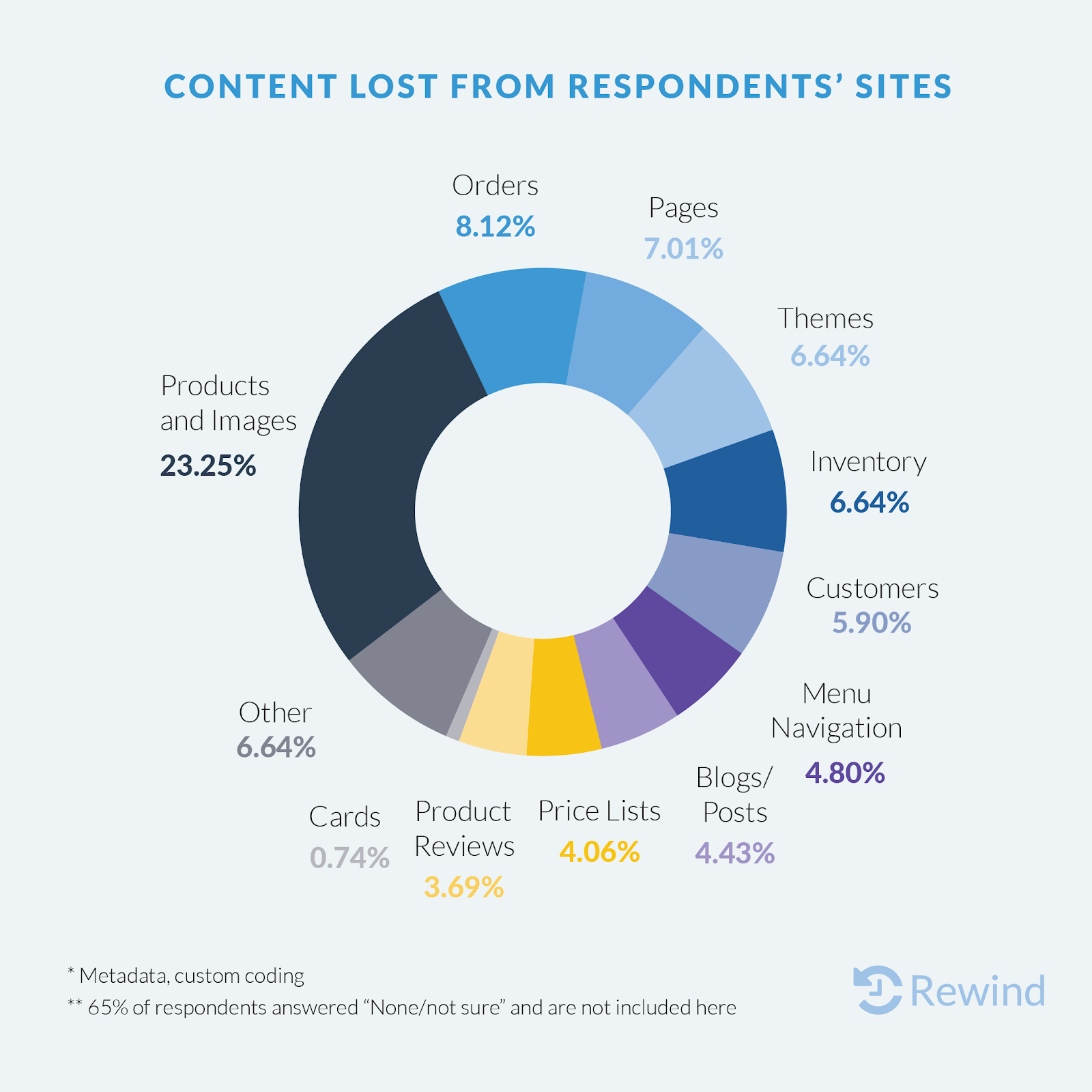It can happen to anyone. One minute you’re transferring data on your ecommerce site, and the next moment all your product images are gone. In fact, according to the 2020 Data Protection Survey Report, 25% of respondents have lost essential data at some point. Out of those respondents, eight percent never recovered from this loss.
Online stores have a lot of valuable data and content that can be lost. From the survey, a total of 23.25% of respondents lost products and images. The visual experience is the driving force behind an ecommerce store. So it’s little wonder that 94% of businesses surveyed believe products and images are the most critical aspects of a store. One respondent said, “Products would end up missing from the website, which would hamper sales, and also create huge manual workaround.”
If a customer cannot see a product, they probably won’t buy it. According to Shopify, 33.16% of consumers want to see multiple photos of a product, and around 60% want to have a 360º view of it.

Working our way down the above graph, 8.12% of respondents had lost orders and 5.90% had lost customer information. A total of 88% of those surveyed said customers and orders are the most critical pieces of data to protect. It makes sense. Losing orders and customers negatively impacts sales.
In particular, one surveyed company said, “Depending on what data is lost, e.g. order data would mean direct loss of sales, other data loss could create unforeseen work and maybe loss of sales and customers.”
Pages (81%), themes (77%), and menu navigation (76%) are the next three main components the survey respondents believe are the most critical to protect. Of those surveyed, 7.01% lost pages, 6.64% lost themes, and 4.08% lost menu navigation. All of these components are integral for the user experience of the site. If customers cannot fully navigate a site, they will not be able to see and buy products. Around 91% of respondents said that losing data would result in time and labour being wasted on rebuilding the website.
“If we were to lose products, there would be revenue loss. If we lost theme files, our site would be broken and would lead to a significant loss of revenue. If we lost menu navigation, our customers would not be able to find our products efficiently and there would also be revenue loss,” – response from When The Store Goes Down: 2020 Data Protection Survey
There are many ways data can be compromised or deleted from an ecommerce store. It can be as innocuous as entering a snippet of broken code in a routine update. That’s what happened to Crossrope. When the store’s theme was being updated, the update prevented customers from adding products to their cart. While Crossrope had a theme backup they could turn to, it was a month outdated. All theme updates since that backup had been lost. The entire restoration process took 24 hours, and it cost the company sales opportunities.
What Crossrope didn’t know at the time was that their platform, BigCommerce, didn’t have a recent backup of their store. Ecommerce companies like BigCommerce and Shopify aren’t responsible for backing up individual account data. That’s the responsibility of the merchant. Around 70% of respondents to the 2020 Data Protection Survey Report are small businesses with under five employees. Ecommerce drives between 76% to 100% of their sales. With such small teams, companies often don’t have the resources to spend countless hours restoring lost data.
To find out more about the most commonly lost store sections, and other online risks ecommerce businesses face, the full 2020 Data Protection Survey Report can be downloaded for free.



